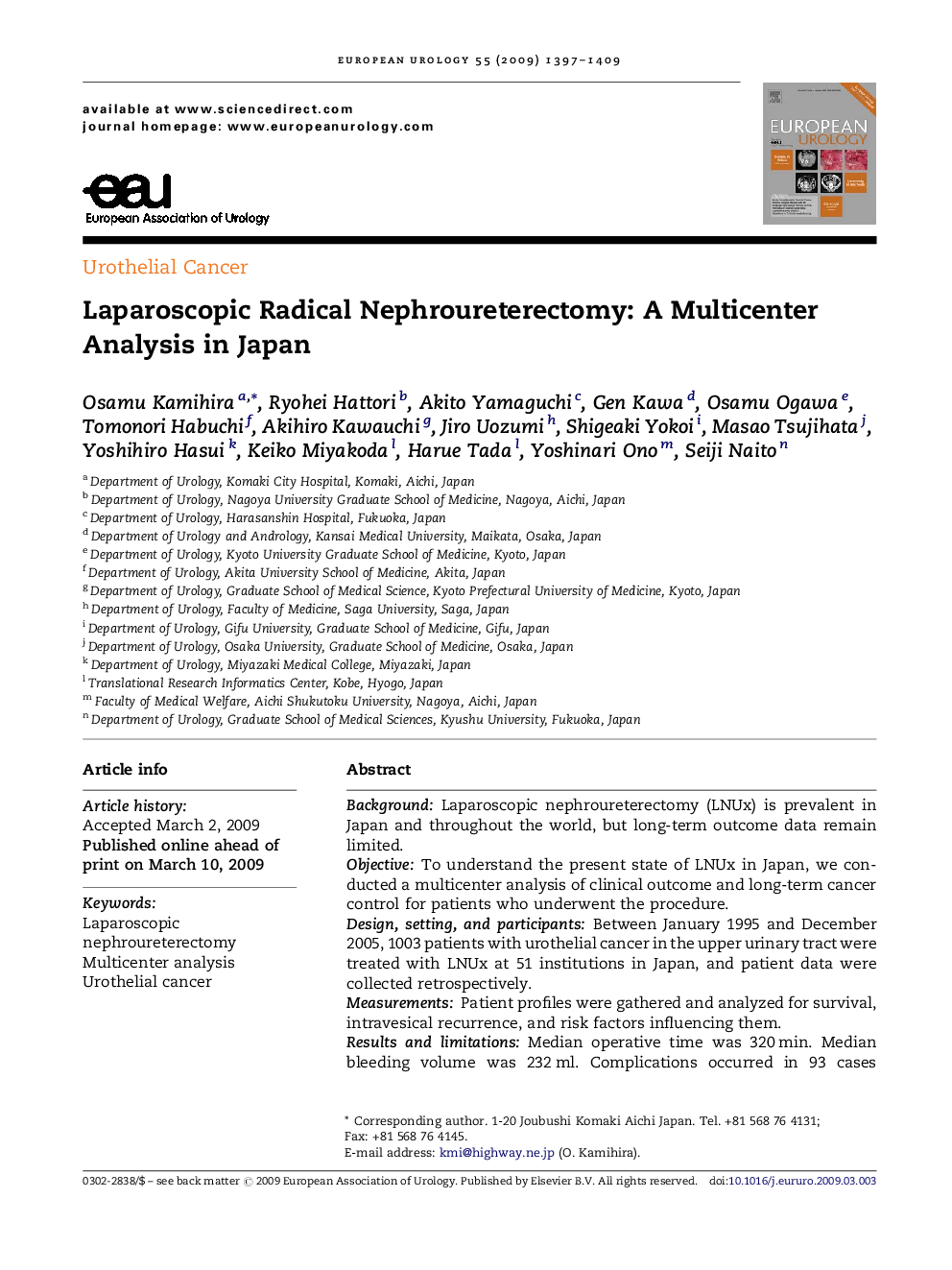| Article ID | Journal | Published Year | Pages | File Type |
|---|---|---|---|---|
| 3928240 | European Urology | 2009 | 13 Pages |
BackgroundLaparoscopic nephroureterectomy (LNUx) is prevalent in Japan and throughout the world, but long-term outcome data remain limited.ObjectiveTo understand the present state of LNUx in Japan, we conducted a multicenter analysis of clinical outcome and long-term cancer control for patients who underwent the procedure.Design, setting, and participantsBetween January 1995 and December 2005, 1003 patients with urothelial cancer in the upper urinary tract were treated with LNUx at 51 institutions in Japan, and patient data were collected retrospectively.MeasurementsPatient profiles were gathered and analyzed for survival, intravesical recurrence, and risk factors influencing them.Results and limitationsMedian operative time was 320 min. Median bleeding volume was 232 ml. Complications occurred in 93 cases (9.3%) intraoperatively and in 107 cases (10.7%) postoperatively. Overall survival rate was 70% at 5 yr. Grade 3, pT3 or pT4, multifocal tumor, lymph-node metastasis, and previous or coexistent bladder tumor were independent risk factors for overall survival. Intravesical recurrence rate was 43% at 5 yr. Intravesical recurrence occurred more frequently in males, in patients with multifocal tumors, in patients with previous or coexistent bladder tumors, and in patients who underwent the hand-assisted approach.ConclusionsOur report represents the largest multicenter analysis of LNUx reported to date. Male sex and the use of the hand-assisted approach were shown for the first time to be risk factors for recurrence-free survival and intravesical recurrence. To further analyze the effectiveness of LNUx, a long-term outcome comparison with risk stratification must be made between LNUx and open nephroureterectomy.
